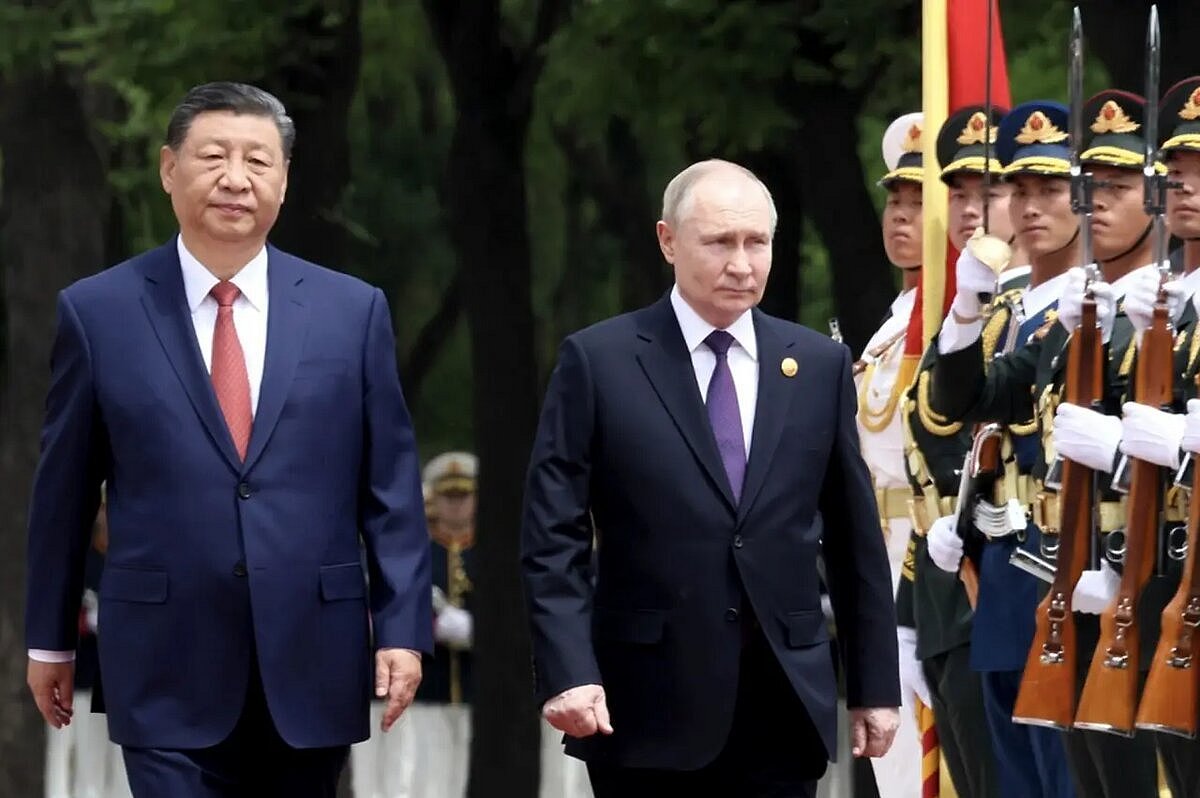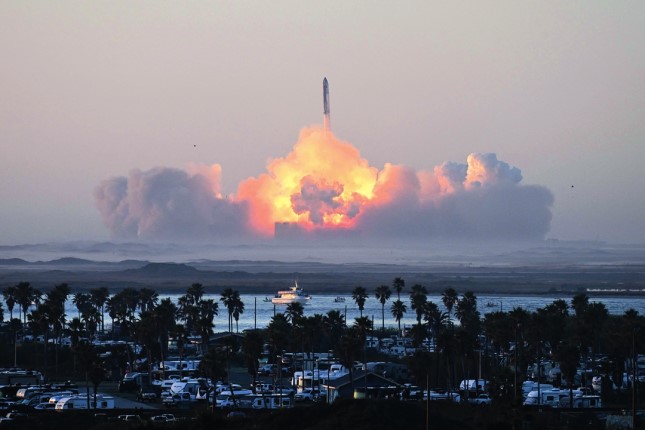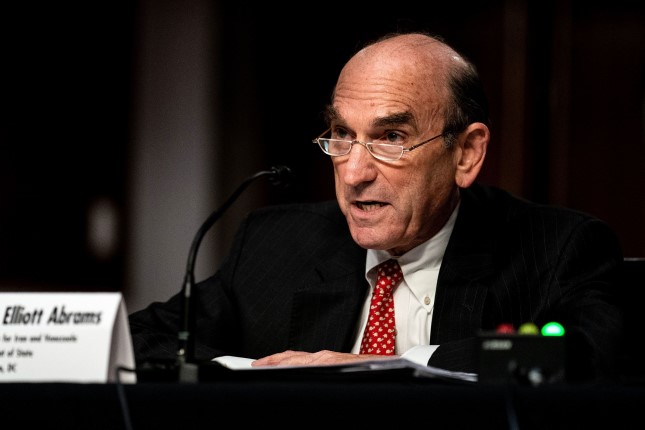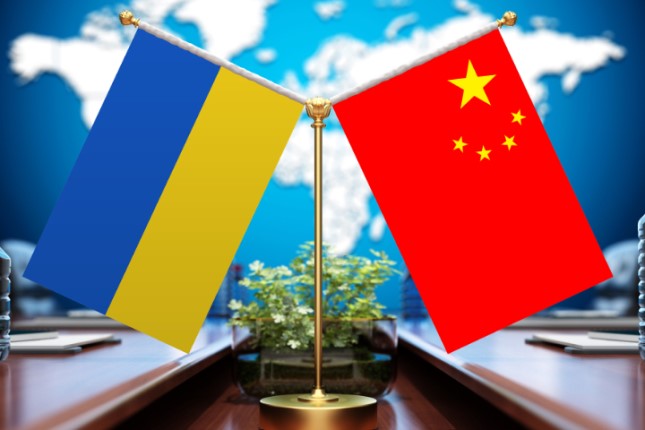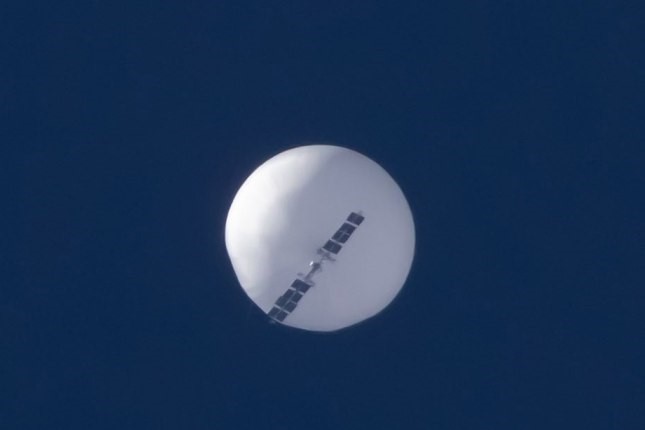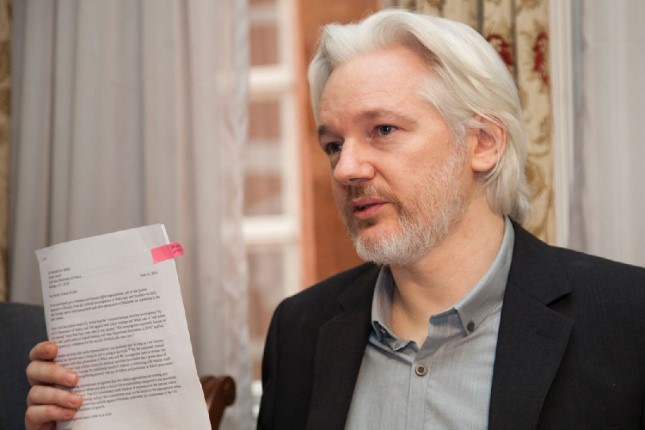We are entering the end stage of the 30-year U.S. neoconservative debacle in Ukraine. The neocon plan to surround Russia in the Black Sea region by NATO has failed. Decisions now by the U.S. and Russia will matter enormously for peace, security, and wellbeing for the entire world.
Four events have shattered the neocon hopes for NATO enlargement eastward, to Ukraine, Georgia, and onward.
The first is straightforward. Ukraine has been devastated on the battlefield, with tragic and appalling losses. Russia is winning the war of attrition, an outcome that was predictable from the start but which the neocons and mainstream media continue to deny.
The second is the collapsing support in Europe for the U.S. neocon strategy. Poland no longer speaks with Ukraine. Hungary has long opposed the neocons. Slovakia has elected an anti-neocon government. E.U. leaders — including French President Emmanuel Macron, Italian Prime Minister Giorgia Meloni, Spain’s Acting Prime Minister Pedro Sanchez, German Chancellor Olaf Scholz, U.K. Prime Minister Rishi Sunak, and others — have disapproval ratings far higher than approvals.

NATO Secretary General Jens Stoltenberg, left, and Spain’s Prime Minster Pedro Sánchez in June 2022 during NATO’s summit in Madrid. Photo: NATO.
The third is the cut in U.S. financial support for Ukraine. The grassroots of the Republican Party, several GOP presidential candidates and a growing number of Republican members of Congress oppose more spending on Ukraine. In the stop-gap bill to keep the government running, Republicans stripped away new financial support for Ukraine. The White House has called for new aid legislation, but this will be an uphill fight.

Interior of U.S. Capitol rotunda from behind the statue of George Washington, showing a portion of Constantino Brumidi’s “Frieze of American History.” Photo: Matt H. Wade / Wikimedia Commons / CC BY-SA 3.0.
The fourth, and most urgent from Ukraine’s point of view, is the likelihood of a Russian offensive. Ukraine’s casualties are in the hundreds of thousands, and Ukraine has burned through its artillery, air defenses, tanks and other heavy weapons. Russia is likely to follow with a massive offensive.
The neocons have created utter disasters in Afghanistan, Iraq, Syria, Libya and now Ukraine. The U.S. political system has not yet held the neocons to account, since foreign policy is carried out with little public or congressional scrutiny to date. Mainstream media have sided with the slogans of the neocons.
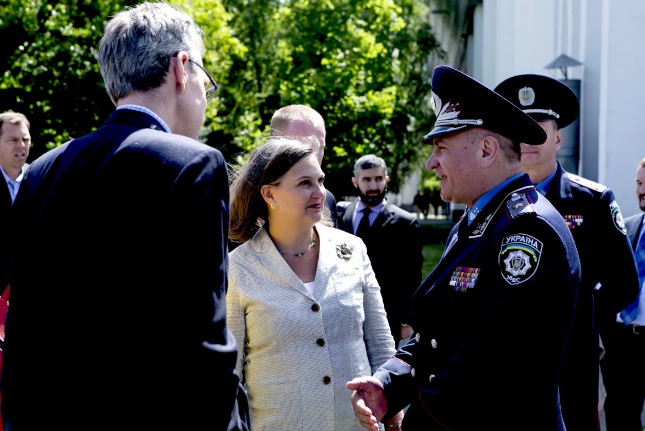
Victoria Nuland, a prominent neoconservative now serving as U.S. acting deputy secretary of state, at the police patrol training site in Kiev on May 16, 2015, when she was assistant secretary of state. Photo: U.S. Embassy Kyiv / Flickr.
Ukraine is at risk of economic, demographic and military collapse. What should the U.S. government do to face this potential disaster?
Urgently, it should change course. Britain advises the U.S. to escalate, as Britain is stuck with 19th-century imperial reveries. U.S. neocons are stuck with imperial bravado. Cooler heads urgently need to prevail.
President Joe Biden should immediately inform President Vladimir Putin that the U.S. will end NATO enlargement eastward if the U.S. and Russia reach a new agreement on security arrangements. By ending NATO expansion, the U.S. can still save Ukraine from the policy debacles of the past 30 years.
Biden should agree to negotiate a security arrangement of the kind, though not precise details, of Putin’s proposals of Dec. 17, 2021. Biden foolishly refused to negotiate with Putin in December 2021. It’s time to negotiate now.
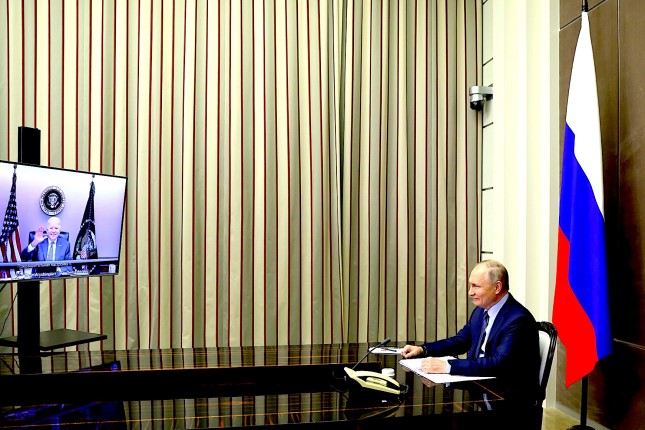
Dec. 7, 2021: Biden, on screen during video call with Putin. Photo: Kremlin.ru / Wikimedia Commons / CC BY 4.0.
There are four keys to an agreement. First, as part of an overall deal, Biden should agree that NATO will not enlarge eastward, but not reverse the past NATO enlargement. NATO would of course not tolerate Russian encroachments in existing NATO states. Both Russia and the U.S. would pledge to avoid provocations near Russia’s borders, including provocative missile placement, military exercises and the like.
Second, the new U.S.-Russia security agreement should cover nuclear weapons. The U.S. unilateral withdrawal from the Anti-Ballistic Missile Treaty in 2002, followed by the placement of Aegis missiles in Poland and Romania, gravely inflamed tensions, which were further exacerbated by the U.S. withdrawal from the Intermediate Nuclear Force Agreement in 2019 and Russia’s suspension of the New Start Treaty in 2023.
Russian leaders have repeatedly pointed to U.S. missiles near Russia, unconstrained by the abandoned ABM Treaty, as a dire threat to Russia’s national security.
Third, Russia and Ukraine would agree on new borders, in which the overwhelmingly ethnic Russian Crimea and heavily ethnic Russian districts of eastern Ukraine would remain part of Russia. The border changes would be accompanied by security guarantees for Ukraine backed unanimously by the U.N. Security Council and other states such as Germany, Turkey and India.
Fourth, as part of a settlement, the U.S., Russia, and the E.U. would re-establish trade, finance, cultural exchange and tourist relations. It’s certainly time once again to hear Rachmaninoff and Tchaikovsky in U.S. and European concert halls.

U.S. embassy in Kiev, 2015. Photo: Artemka / Wikimedia Commons / CC BY-SA 4.0.
Border changes are a last resort and should be made under the auspices of the U.N. Security Council. They must never be an invitation to further territorial demands, such as by Russia regarding ethnic Russians in other countries. Yet borders change, and the U.S. has recently backed two border changes.
NATO bombed Serbia for 78 days in 1999 until it relinquished the Albanian-majority region of Kosovo. In 2008, the U.S. recognized Kosovo as a sovereign nation. The U.S. government similarly backed South Sudan’s insurgency to break away from Sudan.
If Russia, Ukraine, or the U.S. subsequently violated the new agreement, they would be challenging the rest of the world. As President John F. Kennedy once observed, “even the most hostile nations can be relied upon to accept and keep those treaty obligations, and only those treaty obligations, which are in their own interest.”
The U.S. neocons carry much blame for undermining Ukraine’s 1991 borders. Russia did not claim Crimea until after the U.S.-backed overthrow of Ukraine’s President Viktor Yanukovych in 2014. Nor did Russia annex the Donbass after 2014, instead calling on Ukraine to honor the U.N.-backed Minsk II agreement, based on autonomy for the Donbass. The neocons preferred to arm Ukraine to retake the Donbass by force rather than grant the Donbass autonomy.
The long-term key to peace in Europe is collective security as called for by the Organization for Security and Co-operation in Europe (OSCE).
According to OSCE agreements, OSCE member states “will not strengthen their security at the expense of the security of other States.”
Neocon unilateralism undermined Europe’s collective security by pushing NATO enlargement without regard to third parties, notably Russia. Europe — including the E.U., Russia and Ukraine — needs more OSCE and less neocon unilateralism as key to lasting peace in Europe.
CORRECTION: In 1999, NATO bombed Serbia for 78 days, not 47 days as originally reported.
Main photo: French soldiers observe a live-fire NATO multinational battlegroup exercise in Cincu, Romania, April 27, 2022 © NATO / Flickr / CC BY-NC-ND 2.0.
Source: Consortium News.




















